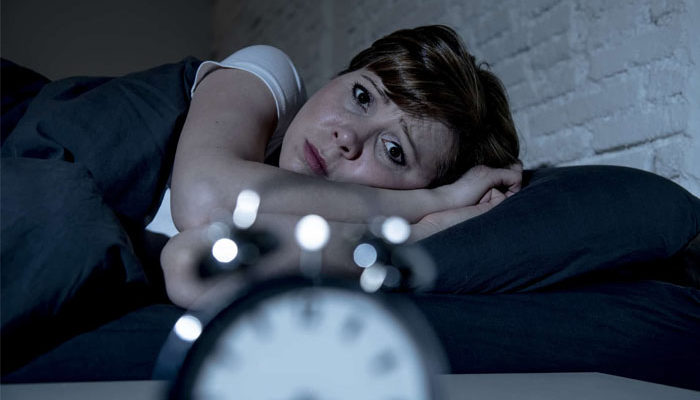We have all grown up in homes where we were told things such as counting sheep will help you fall asleep faster, snoring at night is okay, and many other common myths about sleep. We have carried these thoughts into our adult life and even passed them on to our children. Although some of them may be relatively harmless, others are very unhealthy and could also be the reason behind your poor sleeping habits.
Some of these common sleep myths are:
Table of Contents
Snoring in your sleep is not a big deal
We all know what snoring is, and it happens when airflow is blocked in your airways. Common causes of snoring are poor muscle tone in your airways, alcohol, and drug use, sleep deprivation, or even sleeping on your back, among others. It can affect anyone. However, studies have shown that it is more common in men, for people who are overweight and it worsens with age.
A little light snoring once in a while is not a severe problem, just a nuisance for those who sleep around. However, long-term snoring hurts your quality of sleep as well as disrupting the sleep patterns of those around you as well as increasing your chances of developing heart-related issues. It can also turn out to be a symptom of obstructive sleep apnea and other health conditions.
Some ways to reduce snoring include:
- Sleeping on your side instead of your back.
- Slightly raising the head of your bed or resting your head on a comfortable pillow.
- Try sticking elastic strips to the bridge of your nose aiming to widen your nostrils.
- Be faithful to a sleep schedule.
If these tips fail, it would be advisable to see a doctor and get specific tests done to identify the cause of the snore.
It is helpful to pull an all-nighter
If you have studied economics, then you must be aware of the concept of diminishing returns. This is where you can only invest so much to get returns and investment past a certain level does not just lead to lower returns, but to losses. The same concept applies to our minds. This is because sleep plays a critical role in consolidating thoughts and improving both short and long-term memories. In addition to this, you will probably wake up tired and irritable, which will make you unable to concentrate the next day. So, pulling that all-nighter may not be the best idea, take a rest and go back to it in the morning.
More sleep is always better
Many people believe that sleeping for longer hours is better for your health. Doctors advise that babies below a year require around 14 hours of sleep while toddlers need about 12 hours of sleep and children are good at around 10 hours. Over the age of 16, however, the body requires only around 8 hours of sleep. Going over the number of hours of sleep you require is poor sleep and could be a symptom of a medical condition like depression as well as posting serious health risks such as:
- Increased likelihood of developing obesity, heart disease or diabetes.
- Increased inflammation and pain.
- Increased chances of developing depression.
- Showing signs of cognitive impairment.
- Cognitive impairment.
- Higher all-cause mortality.
In the case that you have been catching yourself over-sleeping, you can gradually reduce the time spent asleep by:
- Living a purposeful life. People whose lives have purpose tend to wake up with more energy and drive than snoozing alarms and struggling to function in the morning.
- Have a healthy diet. Having a balanced diet is linked with normal sleep durations. Excessive sleepers tend to consume less variety of food, often junk and high-fat food. It is advised to include different fresh fruits and vegetables in your diet.
- Reduce alcohol use. Drugs change our sleep cycles leading to less restorative health, which reduces overall activity and makes one want to sleep for longer hours.
- Get regular exercise which should reduce insomnia and wake up during the night.
- Stick to specific sleep time and wake time, which supports your internal clock. Also, get consistent sunlight, which tunes your biological clock to know day from night.
- Have a proper bedroom set-up and ensure it is optimal for rest. This goes beyond just having a comfortable bed and beddings to encompass the aesthetic of your room. It would be best if you considered passing by a store like havertys, where they offer great deals for small bedroom items.
- If you consistently practice these habits and still find yourself in need of excessive rest, visit a physician. Excessive sleep can be a symptom of sleep apnea, heart problems, or depression.
Spending more time in bed helps you fall asleep
As children, I’m sure we have fussed about going to sleep once or twice and been ordered to lie in bed until we fall asleep. But most of the time, this trick doesn’t work out. Staying in bed when you are not sleepy lessens your desire to rest and negatively punctuates cardiac rhythm, which leaves you restless and wide awake. Besides, that extra sleep you sneak in after your alarm goes off may be the reason you struggle to fall asleep at night. Another reason you may be experiencing a little insomnia is exposure to blue light, which is often from our phones and computers or drinking caffeinated drinks less than four hours before you go to sleep.
After about 20 minutes of sleeplessness, it is more advisable to simply get up and do something relaxing like meditating or reading a book until you feel drowsy again.
You should use the weekends to ‘catch-up’ on missed sleep
The week’s structure is such that Monday to Friday is the most grueling days of the week, both mentally and physically, and then the weekend comes in to give us time to rest and evaluate our progress. Many people make the mistake of using the weekend to compensate for the sleep they felt they lost during the week. This is also the justification for pulling all-nighters, which, as discussed, is not advisable. Contrary to giving our body well-needed rest, this habit negatively affects our body’s cardiac rhythm, which makes you tired the next week. An alternative would be to take naps during the day while attempting to maintain your regular sleeping and waking uptime.
These sleep myths may have been just as helpful as they needed to be at some point in your life. However, that does not make the unhealthy ones any less so. Sleep is essential for our physical and mental growth, and we should aspire to get the best quality and quantity of sleep, knowing all the facts.




